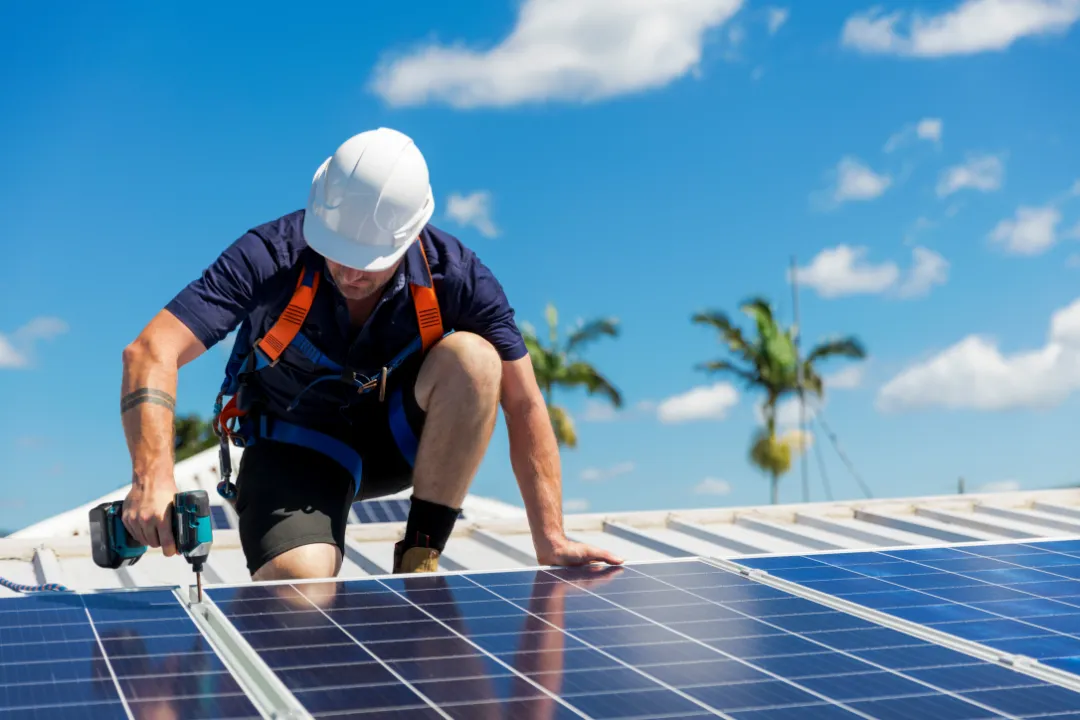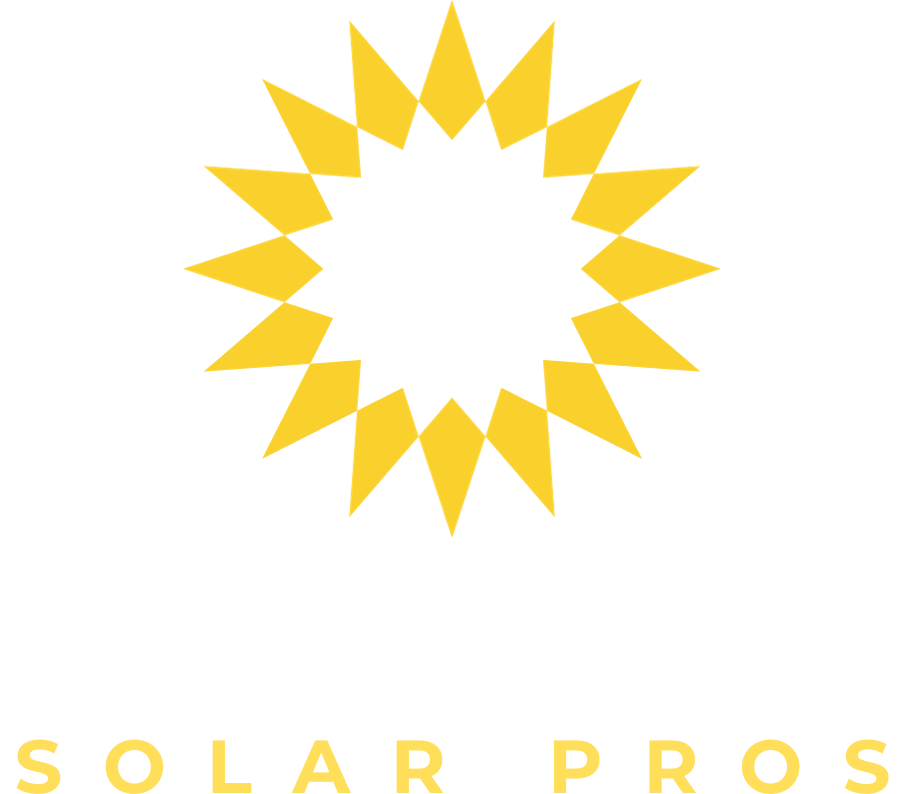DADE CITY SOLAR PROS BLOG
Welcome to our blog about all things solar energy.

Harnessing the Power of the Sun: A Comprehensive Guide to Solar Energy Solutions
As we stand under the scorching summer sun, it's hard not to marvel at the immense power radiating from it. But have you ever wondered if there's a way to harness that power and put it to good use? Well, wonder no more, because in this comprehensive guide, we will explore the world of solar energy solutions. From understanding the basics to choosing the right solar system for your needs, and from installing solar panels to maximizing their efficiency, we've got you covered. But that's not all - we'll also dive into financing options, maintenance tips, and everything you need to know to make the most of this abundant and sustainable energy source. So, get ready to embark on a journey into the sunlit world of solar energy solutions, where the possibilities are as vast as the sky itself.
Understanding Solar Energy Basics
Understanding the basics of solar energy is crucial for anyone interested in harnessing its power. Solar energy, derived from the sun's rays, offers numerous advantages. First and foremost, it is a renewable and sustainable source of energy, meaning it will never run out. Unlike fossil fuels, solar energy does not release harmful greenhouse gases into the atmosphere, making it environmentally friendly. Additionally, solar energy systems require minimal maintenance and have a long lifespan, reducing the need for frequent replacements.
However, it is important to acknowledge the disadvantages of solar energy as well. One major drawback is its intermittent nature. Solar power generation is dependent on sunlight availability, which means it is not consistently available at all times. This can be problematic during cloudy days or at night when the sun is not shining. Another disadvantage is the initial cost of installing solar panels. While the price of solar systems has decreased over the years, the upfront investment can still be significant. However, it is important to note that solar energy can lead to long-term cost savings on electricity bills.
Types of Solar Panels
Now let's explore the different types of solar panels available in the market. When it comes to solar panels, two popular options are monocrystalline and polycrystalline. Monocrystalline panels are made from a single crystal structure, resulting in high efficiency and sleek appearance. On the other hand, polycrystalline panels are made from multiple crystal structures, offering a more affordable option with slightly lower efficiency.
Another consideration is the choice between thin film and silicon panels. Thin film panels are made by depositing a thin layer of semiconductor material onto a substrate. They are flexible, lightweight, and can be easily integrated into various applications. However, they generally have lower efficiency compared to silicon panels.
Silicon panels, on the other hand, are more commonly used in residential and commercial installations. They are made from crystalline silicon wafers and offer higher efficiency compared to thin film panels. Silicon panels are rigid and have a longer lifespan, making them a popular choice for long-term investments in solar energy.
When deciding on the type of solar panel to install, it is important to consider factors such as efficiency, cost, appearance, and application requirements. It is recommended to consult with a solar energy professional to determine the best option for your specific needs.
Choosing the Right Solar System for Your Needs
When selecting a solar system that meets our specific needs, it is important to consider various factors such as our energy requirements, available space, and budget constraints. One of the key considerations is solar system sizing. It is crucial to determine the appropriate size of the solar system to ensure that it can generate enough electricity to meet our energy demands. This involves analyzing our energy consumption patterns and estimating the amount of solar energy that can be harnessed in our location. Consulting with a solar professional can help us accurately determine the optimal size for our solar system.
Another important factor to consider when choosing a solar system is the warranty offered by the manufacturer. Solar system warranties provide peace of mind and protect us from unexpected expenses in case of any defects or issues with the system. It is advisable to opt for a solar system with a comprehensive warranty that covers both the equipment and the installation. This will ensure that we are protected against any potential problems that may arise.
Installing Solar Panels: What to Expect
After determining the appropriate size of our solar system and selecting a system with a comprehensive warranty, the next step is to understand what to expect during the installation of solar panels. The solar panel installation process can vary depending on factors such as the size of the system and the complexity of the installation. Generally, the installation involves several key steps. First, the installer will assess the site to determine the best location for the panels. Then, the panels will be mounted on the roof or ground-mounted using a racking system. Next, the panels will be connected to the electrical system of the property. Finally, the system will be tested to ensure it is functioning properly.
While the installation process is generally smooth, there can be some common challenges that may arise. One challenge is dealing with the logistics of getting the panels and equipment to the installation site. This may involve coordinating with suppliers and ensuring all the necessary materials are delivered on time. Another challenge is navigating the permitting process, as obtaining the necessary permits can sometimes be time-consuming. Additionally, weather conditions can impact the installation timeline, as adverse weather may delay the process. Despite these challenges, a professional installer will have experience and expertise to overcome them and ensure a successful installation. By understanding the solar panel installation process and being prepared for potential challenges, we can have a smooth and efficient installation experience.
Maximizing Solar Energy Efficiency
To optimize the efficiency of solar energy, it is crucial to implement strategies that maximize the utilization of sunlight and minimize energy losses. One important aspect to consider is solar energy storage. By using batteries or other storage solutions, excess solar energy can be saved for later use, allowing for a more consistent and reliable energy supply. This is especially useful during times when sunlight is limited, such as cloudy days or nighttime.
Another strategy to maximize solar energy efficiency is solar energy tracking. This involves adjusting the position of solar panels to follow the path of the sun throughout the day. By doing so, the panels can capture the maximum amount of sunlight at any given time, resulting in increased energy production. There are different tracking systems available, including single-axis and dual-axis trackers, each with its own advantages and limitations.
In addition to storage and tracking, proper maintenance and cleaning of solar panels is essential for optimal efficiency. Dust, dirt, and debris can accumulate on the panels, reducing their ability to convert sunlight into electricity. Regular inspections and cleaning can help remove these obstructions and ensure that the panels are operating at their peak performance.
Financing Options for Solar Energy Projects
We explored various financing options for solar energy projects. When it comes to financing solar energy projects, there are a few key options to consider: solar energy grants and leasing options.
Solar energy grants are a popular choice for those looking to finance their solar projects. These grants are typically offered by federal, state, or local governments, as well as private organizations. They are designed to provide financial assistance to individuals or businesses that want to invest in solar energy. Grants can help offset the upfront costs of installing solar panels and can significantly reduce the overall project cost. However, it's important to note that grants are competitive and often have specific eligibility requirements.
Another financing option to consider is leasing. Solar leasing allows homeowners and businesses to install solar panels without the upfront costs. Instead, a third-party leasing company will own and maintain the system, while the customer pays a monthly lease payment. While leasing can be an attractive option for those who don't want to invest a large sum of money upfront, it's important to carefully review the terms and conditions of the lease agreement, as it may include certain restrictions or limitations.
Maintenance and Care for Solar Panels
Now let's shift our focus to the important topic of maintaining and caring for solar panels. Keeping your solar panels clean is crucial for optimal performance and efficiency. Regular cleaning techniques can help remove dirt, dust, and debris that may accumulate on the surface of the panels. A gentle rinse with water and a soft cloth or sponge can effectively remove most dirt particles. However, it is important to avoid using abrasive materials or harsh chemicals that could damage the panels. In addition to regular cleaning, troubleshooting common issues is also necessary to ensure the longevity of your solar panels. Some common issues include reduced energy production, faulty wiring, or inverter problems. If you notice any decrease in energy production, it is recommended to contact a professional solar panel technician to diagnose and fix the issue. Regular maintenance and care for your solar panels will not only enhance their performance but also extend their lifespan, allowing you to enjoy the benefits of solar energy for years to come.
Conclusion
In conclusion, harnessing the power of the sun through solar energy solutions is a smart and sustainable choice for meeting our energy needs. By understanding the basics, choosing the right system, and maximizing efficiency, we can benefit from clean and renewable energy. With various financing options available, solar energy projects are becoming more accessible to everyone. Regular maintenance and care ensure the longevity and efficiency of solar panels, making them a reliable and cost-effective solution for the future.
Connect With Us
Locations We Serve:
© Copyright 2026 Dade City Solar Pros. All Rights Reserved.
Terms & Conditions | Privacy Policy

